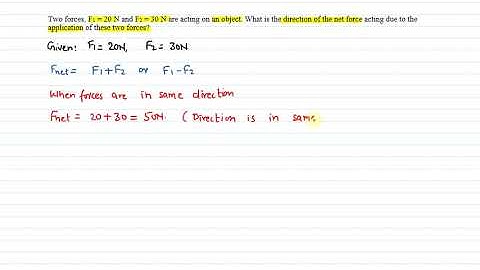The Treaty was fair in the sense that it could be justified by the Allied powers. It was not wise in that the harsh conditions of the treaty set the stage for world war II. Germany had declared war on France Russia and England after Russia declared war on the Austrian Hungarian Empire. This provided a legal justification for the harsh terms of the treaty. Germany had been guilty of executions and harsh treatment of the civilian populations in Belgium and the parts of France under German control. This provided a moral justification for the harsh terms of the treaty. France and England had suffered huge loses during world war I of both property and lives. Large parts of the French country side had been destroyed by the trench warfare that took place in France. This provided a monetary justification for Germany being forced to pay for the loses incurred by the Allies. The treaty could be justified but that did not make the treaty just. By imposing such harsh treatment of their opponent in world war I, the allies ensured that Germany would continue to be their enemy in world war II. The Marshall plan after World War II took the opposite tack. The treaty were designed to heal the wounds of World War II, not to punish the German people for Germany's part in starting world war II. Instead of creating the conditions for another war with Germany, the Marshall plan brought peace and created an ally of Germany. The Treaty of Versailles was justifiable given the actions of the German government during World War I but it was unwise because of its punishment of the German people it created the conditions for World War II. The audio, illustrations, photos, and videos are credited beneath the media asset, except for promotional images, which generally link to another page that contains the media credit. The Rights Holder for media is the person or group credited. National Geographic Society, National Geographic Society Mary Crooks, National Geographic Society, otherThe first reason the Treaty of Versailles was perceived as unfair was the inclusion of the War Guilt Clause which was juxtaposed to German perceptions of World War I. The War Guilt clause gave culpability to the Germans for beginning the war which held widespread ramifications with regard to the rest of the Treaty. This was important because this clause forced Germany to accept the rest of the Treaty having accepted responsibility for the war. Furthermore this clause also went against the perception that Germany's involvement was due to alliances with Austria and that its population had not truly lost the war. The intertwining of these factors meant the treaty was perceived as unjust because it went against German attitudes to the war and held within it the rest of the consequences of the treaty.
If you're seeing this message, it means we're having trouble loading external resources on our website. If you're behind a web filter, please make sure that the domains *.kastatic.org and *.kasandbox.org are unblocked.
The Germans hated the Treaty of Versailles because they had not been allowed to take part in the Conference. They thought they had been tricked and betrayed, and they hated the Treaty.
The main reasons why the Germans hated the Treaty of Versailles was because they thought it was unfair. Germany had not taken part in the Conference. The terms were imposed upon Germany – when Germany disagreed, the Allies threatened to go to war again. The Germans were treated like a defeated country, but they did not think they had been defeated. They had signed an Armistice – a ceasefire – in 1918, and they had thought they were accepting Wilson’s 14 Points. In the event, few of the 14 Points got into the Treaty. The Germans thought they had been tricked and betrayed, and they hated the Treaty. The Germans were also furious about the various terms of the Treaty. They hated clause 231 – the ‘War Guilt’ clause – which stated that Germany had caused ‘all the loss and damage’ of the war. Firstly, the Germans did not think that they had caused the war (for the Germans, the war was a war of self-defence against Russia, which had mobilised 31 July 1914). During the 1920s, the Germans published all their secret documents from 1914, to prove they had tried to stop the war. Secondly, the Germans hated clause 231 because accepting it gave the Allies the moral right to punish Germany – it validated all the harsh terms of the Treaty. Germany hated the military terms of the Treaty (army of 100,000, only 6 battleships, no submarines or aeroplanes). The Germans said it left them powerless against even the tiny new nation-states. The demilitarisation of the Rhineland was hated because the Weimar republic was weak, and there were many rebellions. But in April 1920, when the Germans sent troops into the Rhineland to stop rioting, the French invaded. The Germans said that not to be able to send troops even to places inside Germany was a national insult. Yet, although the Allies did not allow Germany an army, they did not let her join the League of Nations. This was an insult, and it also meant the Germany had no way ever to get fair treatment by other states – neither armies nor argument. The Germans also hated reparations, set eventually (1921) at £6.6 billion, to be paid in instalments until 1984. They did not accept that Germany had caused all the damage. They felt that the huge sum was just designed to destroy their economy and starve their children. Most of all, they hated reparations because they too had rebuilding work to do. Germany’s economy was ruined, but, instead of being able to pump investment into German industry, the country had to send abroad huge sums of money that German industry was not yet strong enough to earn. Finally, the territorial terms of the Treaty of Versailles also made the Germans angry. Germany lost 10% of its land. The Saar was a valuable coalfield, and West Prussia and Upper Silesia were rich farming areas, so their loss further weakened Germany’s economy. The loss of the Polish corridor separated East Prussia from Germany, and further damaged the German economy. Germany lost 16% of its coalfields and half its iron and steel industry. The loss of all Germany’s colonies to be mandates was seen as just so much British empire-building. The loss of Malmedy to Belgium, Schleswig to Denmark, Memel to Lithuania – and most of all Alsace-Lorraine to France – was also a national humiliation. The Treaty of Versailles also forbade Anschluss with Austria. This seemed unfair to the Germans, because everywhere else in Europe, the Treaties of 1919–20 gave peoples self-determination, but they divided Germany, and put 12½% of its population into other countries. |

zusammenhängende Posts
Werbung
NEUESTEN NACHRICHTEN
Toplisten
#1
#3
#4
Top 6 tlc mein leben mit 300 kg cillas 2022
1 Jahrs vor#5
Top 8 ich liebe dich unendlich italienisch 2022
2 Jahrs vor#6
#7
Top 9 windows 8.1 update-suche dauert ewig 2022
1 Jahrs vor#8
Top 9 co2 flasche füllen in meiner nähe 2022
2 Jahrs vor#9
Top 5 britax römer king 2 gurte einbauen 2022
1 Jahrs vor#10
Werbung
Populer
Werbung

Urheberrechte © © 2024 frojeostern Inc.


















